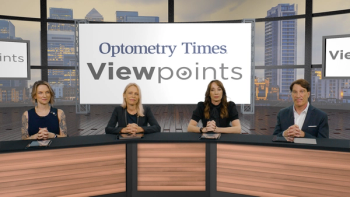
VEW 2022: Pediatric vision
Michelle Hoff, OD, FAAO, ABOM, FNAO, and Isabel Kazemi, OD, FAAO, share key takeaways from their VEW 2022 presentation, "The ABCs on pediatric vision."
Michelle Hoff, OD, FAAO, ABOM, FNAO, associate clinical professor at Berkeley’s School of Optometry, and Isabel Kazemi, OD, FAAO, assistant clinical professor at Berkeley’s School of Optometry, sat down with Optometry Times® editor Kassi Jackson to share hightlights from their presentation, "The ABCs on pediatric vision," which they presented during this year's Vision Expo West in Las Vegas.
This transcript has been lightly edited for clarity:
Jackson:
I'm joined today by Dr. Michelle Hoff, associate clinical professor at Berkeley's School of Optometry and Dr. Isabel Kazemi, assistant clinical professor at Berkeley's School of Optometry. They're here to share highlights from their discussion titled, "The ABCs on pediatric vision," which they're presenting during this year's Vision Expo West in Las Vegas. Thank you both for being here.
Hoff/Kazemi:
Thank you for having us.
Jackson:
Would you please share key takeaways from your presentation?
Hoff:
We would like people to understand the pediatric population, what it comprises in our general population, also some of the visual conditions and sort of the visual environment that kids have that can be challenging. And to have parents, teachers, physicians understand that we need to address these visual conditions a little bit differently than we do adults.
Kazemi:
I think another key takeaway is that the eye exams for kids are very different than eye exams for adults, and that some people—or parents—might be a little bit lax if the kid has had a school screening or went through a screening and passed, but it is not sufficient enough and misses about 80% of visual problems that the kid might have.
Hoff:
That's a really good point. The other thing for kids is the safety factor. Kids need to have their vision protected. And so it's important to think about not only what they do in school, but also what they're doing with their activities. So protecting their vision and giving them the best visual experience they can so that they can learn and develop normally, because there are a lot of conditions that could easily be remedied and if they're not remedied, then they'll have long term consequences as they become adults.
Kazemi:
That's a great point, Michelle. But speaking of protection, kids also need protective eyewear for their sports activities and to protect their eyes from UV rays, as well as blue light.
Newsletter
Want more insights like this? Subscribe to Optometry Times and get clinical pearls and practice tips delivered straight to your inbox.

